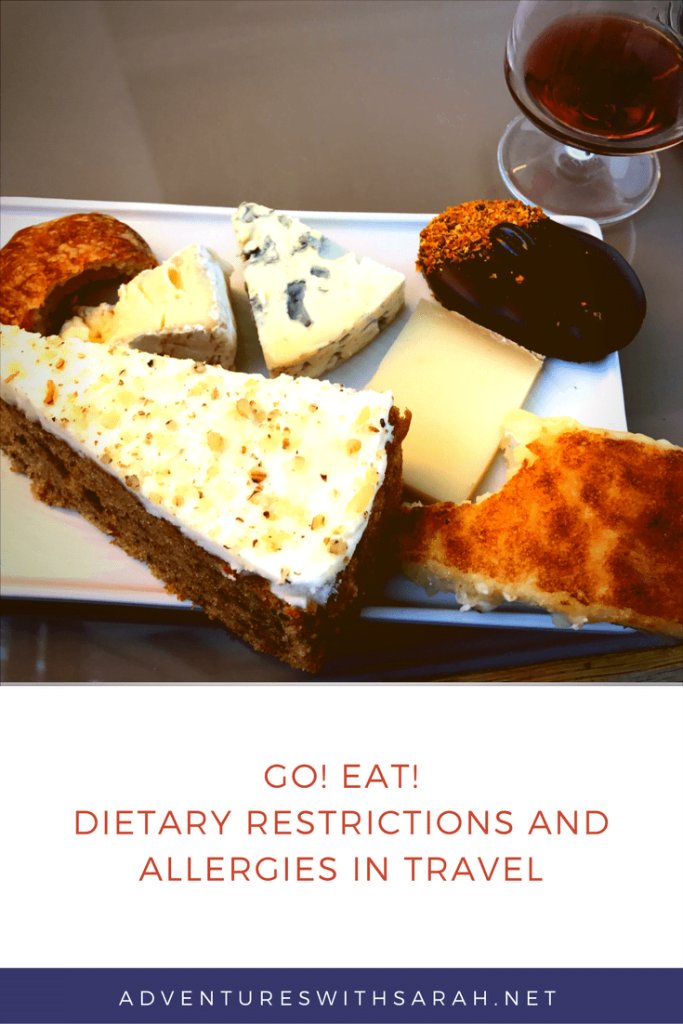
Of all the great travel experiences, there is one constant–eating well wherever you are will make your trip richer and more fun. But what if you have allergies or dietary restrictions in travel that will keep you from eating whatever you like? Not to worry, you can eat local and eat well wherever you go, as long as you’re flexible and open to finding solutions.
After many years tour guiding, I think I’ve dealt with just about every issue imaginable. I’ve got some stories. Diet fads are common; they come and go. I’ve seen it all. The Atkins Diet was particularly frustrating for a guide working in Italy…the land of carbs.
I’ve had clients that, by necessity and not choice, could pretty much just eat only lettuce. I met someone once that would only eat peanut M&Ms and Coke. Another only ate French Fries, but that’s another story…
Eat Local! Visit the Museum of Food
I like to look at food while traveling as a can’t-miss sight. I call it a visit to the Museum of Food. If you don’t eat the local food, you haven’t really been to a place. It’s like visiting Paris without seeing the Eiffel Tower. Eating a real crepe is equal to (or more important than) seeing the Mona Lisa. And has no calories. Didn’t you know that food has no calories while you travel? True story.

I’ve eaten fondue in Switzerland, haggis in Scotland, spleen in Palermo, crickets in Thailand and some potato-like root vegetable in Paraguay. Those experiences are some of the most memorable to me.
My policy on tour is the policy in my house–a no-thank-you bite is required. It’s not required to like it, but it is required to try it. Yes, even the crunchy dung beetles in Cambodia. But have a local peel them for you first.
Not everyone can dive in whole hog, though, I know that. Broadening definitions and boundaries is the starting point.
Is it an Allergy or a Preference?

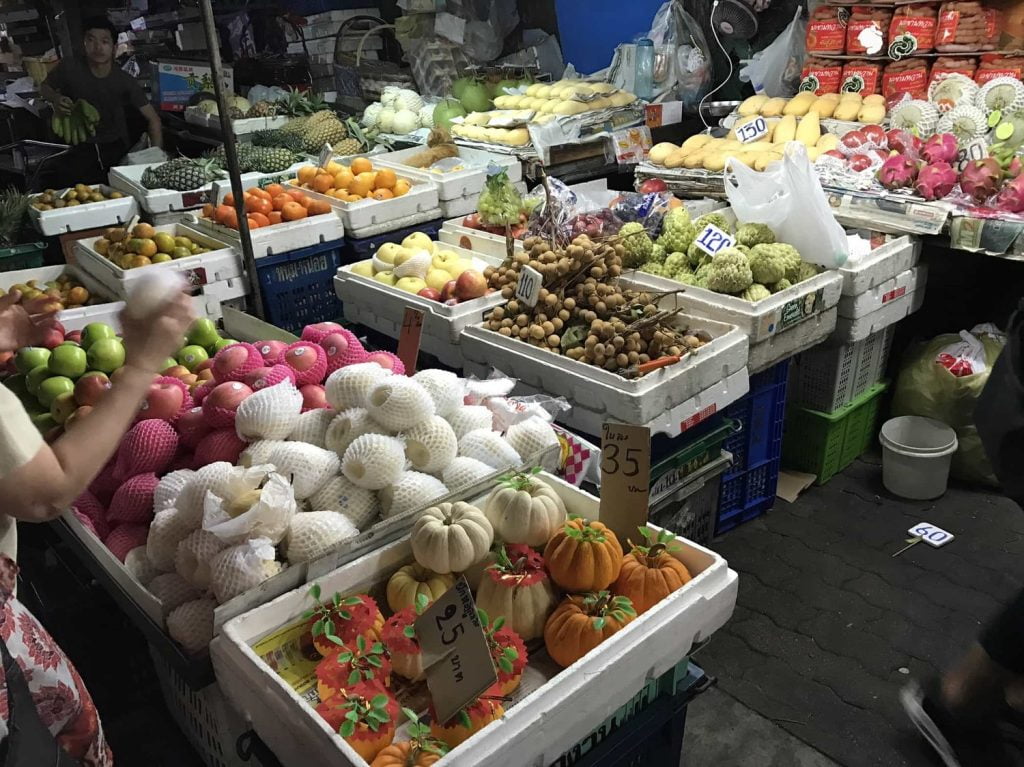
Since a visit to the Museum of Food is an important part of travel, the first question as far as dietary restrictions goes is– is it an allergy or a preference? All allergies can be accommodated, but preferences are something else.
I define a food preference as choosing not to eat something. The reasons could be simple: just not liking something. The reasons can be complex as well: religious observation, lifestyle choices, beauty regime oriented, personal objections for who-knows-what-happened-in-your-childhood. Some of those are totally legit. Others…less so.
The thing is, if you unnecessarily restrict what you choose to eat while you travel, you may be missing out on a cool experience. I don’t particularly like fish, but I will eat it in Sicily because that’s what you do there.
I feel sorry for people who refuse to eat tomatoes in Italy because they just don’t like tomatoes. Generally, I feel sad for people who don’t eat the beautiful food the world has to offer due to having a closed mind.
Rick Steves has famously said “If it’s not to your liking, change your liking.” I agree with this wholeheartedly. If you have food preferences, leave them at the airplane door if you can. Leave the diet or lifestyle choice behind for a few days.
Try everything, even stuff you normally hate. You may find a whole new universe of food waiting for you.
Allergies are NOT a Reason to Stay Home
There are serious allergies out there, and they seem to be getting more common. That’s the bad news. The good news is that the world has become much more aware of the issue. You don’t need to stay home or hide under the sheets due to a food allergy.
Dietary restrictions in travel are not unusual anymore. I can’t think of a single time when I haven’t been able to work out something to get a traveler through a trip, no matter what the issue. Seriously, have I mentioned that I’ve seen some strange things? It always works out.
If you don’t believe me, I always fall back on lettuce. I have never met a person who couldn’t eat lettuce. Also rice. Pretty much everyone can eat those. They are available in just about every country, fixed in a thousand different ways. Can you drink water? Everyone has water.
See? You’ll be fine. It’s not exciting, but even they most troubled tummy can find something to get by on.
Strategies for Dietary Restrictions in Travel
I have a pretty simple approach to travelers with serious dietary restrictions-plan ahead. Maybe these strategies will help others sort through how to get out and travel without fear.
- Write a list of what you can’t eat. Use Google Translate to print that list out in the local language, with “I can’t eat…” at the top. Laminate it and keep it in your money belt.
- Write a list of what you CAN eat and research common local dishes that will work. I find it much easier for people to list what they absolutely can eat, and then coming up with dishes of those ingredients.
- Bring emergency food. Just in case, stock up on protein bars that work for you in case something goes awry.
- Contact airlines, hotels and restaurants ahead of time to warn them. Many hotels and restaurants are willing to go out and get what you need with an advance reservation.
- Be your own policeman. Even if you are assured that what you are served is edible for you, beware. I’ve had that problem with pine nuts, I said NO nuts and they didn’t think pine nuts counted. Thank goodness for Benadryl.
- Speaking of Benadryl, bring your meds and tell others where they are. If you’re alone, pin a card with that info to your daybag.
- Don’t tell people you’re allergic to something if you simply don’t like it. People know when you do that. Really. They do. It’s like crying wolf, it is a disservice to people who really have serious allergies.
- Above all, be cool about it. Don’t demand, don’t expect. It’s that whole honey vs vinegar thing. If you need people to help you, they need to feel appreciated for their efforts. I’ll walk to the ends of the earth for someone who is kind and gentle about their needs.
The bottom line on dietary restrictions in travel: is it a real allergy or a preference? If it’s a preference, can you set that aside for a few weeks? If it’s an allergy, don’t worry, just plan ahead and ask for help. No need to stay home, the world is waiting for you. So is the lettuce.

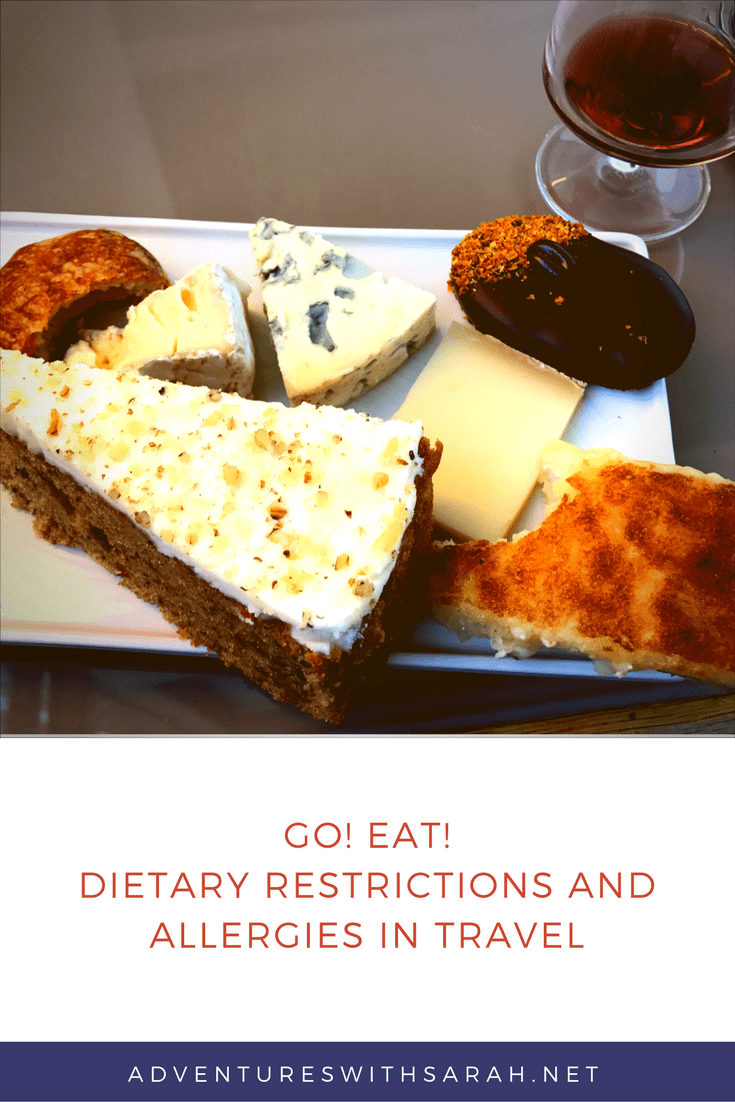

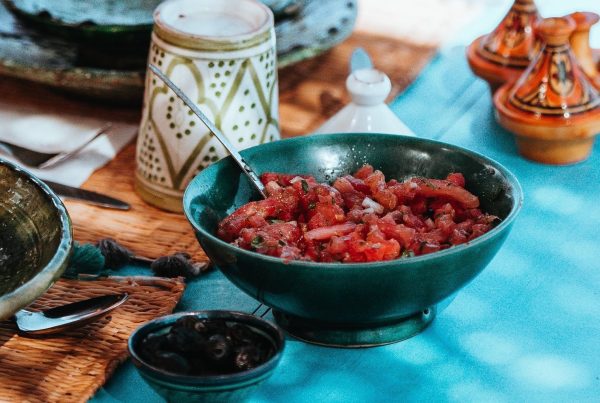
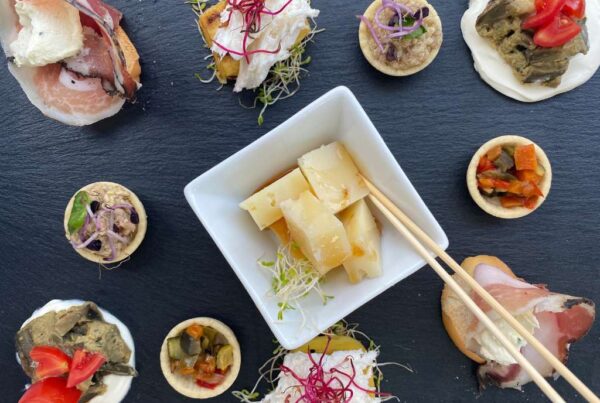


Your blog brings to mind a comment made to me by an RS tour guide in Italy (not you). It was 2013 Villages of Italy. She said she had never had so many diet restrictions, and she had seen a trend overall of this increasing. I think we had 2 kinds of Kosher, vegetarian, pescatarian, gluten-free, vegan, etc. I don’t know if it is a factor of just a greater mix of people being out there or we have become a bunch of fussy wimps. Of course, I understand religious and health restrictions. After that, I say “loosen up”. I, personally, am not an adventurous eater, but I have enjoyed haggis and a few other off the beaten track foods and enjoyed them for the most part. I must say there are no dung beetles – peeled or otherwise – in my future!
Great post! There are many legitimate reasons for dietary restriction, but sometimes I feel the issue is similar to politics these days-it’s attention seeking behavior that just magnifies an inability to tolerate differences of opinion. We are collectively so rich and indulgent that we can manipulate our intakes in ways that would have been unheard of years ago.
I appreciate your post, but I think you missed something in the middle between a food allergy and a food preference. You missed food sensitivity, which is what I have and I don’t let it stop me from travelling. What I have is not an allergy because it does not cause an immune reaction but I can feel so miserable that it can ruin a day or two of travel if I eat the wrong thing. One thing that I do in preparation for my trip is to look up the foods or ingredients that I most commonly have issues with in google translate so that I can recognize them on menus without asking.
I’d put that on the allergy list, personally. If it’s something that will make you miserable, that counts and it’s easier for people to understand if you just say you’re allergic to whatever it is.
How easy is low salt restrictions?
Not too difficult. I find that the food abroad tends to be lower salt in general than in the US.
I am with Bowren with the missing the ‘sensitive’ aspect of food. Won’t kill you, but makes you sick….and that includes lettuce. I know others with rice allergies…but they are rare.I do as you recommended about researching ingredients and learning key words in whichever language is required. There are actually cards you can buy with the proper terminology as sometimes Google Translate doesn’t translate it sufficiently.When traveling in developing countries I find I have better luck avoiding my sensitivities by eating local food. Wheat is an issue for me, but a lot of cultures use flours other than wheat and I have had some memorable pancakes and breads made of cassava flour in Africa or South America. Being able to eat baked goods is such a treat.I also think that some of our sensitivities are more ‘environmental and produced’ such as all the chemicals and poisons in the fertilizer for that lettuce, grapes, tomatoes or apples, and processing of wheat, chocolate or sulphites in wine. Reactions may be different or non existent in other countries where processing or growing practices are different.I will have to practice the ‘no thank you helping’ for myself that I used to do with the kids….however, don’t tell me it is dung beetle until after I have swallowed it. At 60, I think I can chose what I want to order, but I’ll happily try what you offer as long as you don’t tell me what it is until afterwards.
Love this! My kids, ages 9 & 12, have multiple food allergies w/ anaphylaxis. They’ve been to Europe 5 times w/ ZERO reactions. My son also has a GI disease that limits him to 8 total foods so we bring a suitcase of his medical formula, some tuna cans that are safe for him & he’s good to go. I try & book rentals as we can have access to a kitchen (plus it’s just more room for our family) & always make time on our day of arrival for me to hit the grocery store & pour over ingredient labels as long as I need to. We’ve found restaurants & staff to be very helpful & even when they couldn’t accommodate we were appreciative of their honesty & explain we always bring our kids’ “safe” foods with us in case. (My husband & I like to eat out occasionally on vacation & it’s also a good experience for our kids, too, to show them how to manage in such situations.)
My husband is allergic to lettuce. All uncooked fruits and vegetables actually, but lettuce and apples will legitimately kill him. He’s fine with cooked fruits and veggies though, so he avoids salads and fruit cups and is generally ok. I have a seafood allergy myself, along with Crohn’s disease that is triggered with certain foods and I had no issues in France and Italy two years ago. Actually I felt great the whole trip!
Hi Sarah, can your next post be on the bags you used for this last trip? It looks like a different pack. Did you take your Tom Bihn messenger bag? I’m leaving for the RS Adriatic tour at the end of August and am trying to switch up my packing:) (Love the new font on your blog, by the way!)
Ha! We had the no-thank-you bite when I was growing up too.But, I have to say, I disagree with lumping vegetarian/veganism in there. For some (not all) vegetarian/vegans, their “preference” is borne out of a desire not to commit what they believe to be morally repugnant acts.(Sorry this is a bit pedantic, I took a Philosophy class in Food Ethics for kicks recently so the topic is fresh for me)In many parts of the Congo, chimpanzee meat is consumed widely, and Korea’s major dog meat market was shut down very recently, but up until then, it was not at all difficult to consume dog meat. The dogs were first bashed over the head and then, while still partly conscious, blow-torched to remove their fur, because it was believed that the adrenaline released from the fear was extra delicious.If a person can agree that eating these foods would be morally repugnant and you wouldn’t want to engage, then you can understand where vegetarian/vegans are coming from (I certainly wouldn’t want to be friends with someone who was curious about what flambeed fear tastes like). Pigs are easily as smart and sociable as dogs, but I get that they are not as cute and sort of smelly and apparently bacon is awesome, but some vegetarians believe they have as much a right to life as dogs. The thing that sets this choice apart from the others and makes it a moral one, is that the choice affects others (animals) – every other dietary preference affects only that person. In some ways, you could say that makes it really the only valid preference, because the choice affects others without their consent.Besides, I have been vegetarian for 28 years and if I get snuck a small amount of meat (e.g. food cooked in lard), I can get very ill.That said, when I travel, I research and prepare best I can and don’t whine if I end up eating just bread or french fries for a few days. We’re off to Switzerland soon and it looks like I’m going to be eating a lot of pasta and rosti 🙂
[…] Article: Dietary Restrictions in Travel Writing […]
[…] I mentioned in my previous article on dietary challenges, I’ve had clients with all kinds of limitations. Everything is possible to accommodate. […]